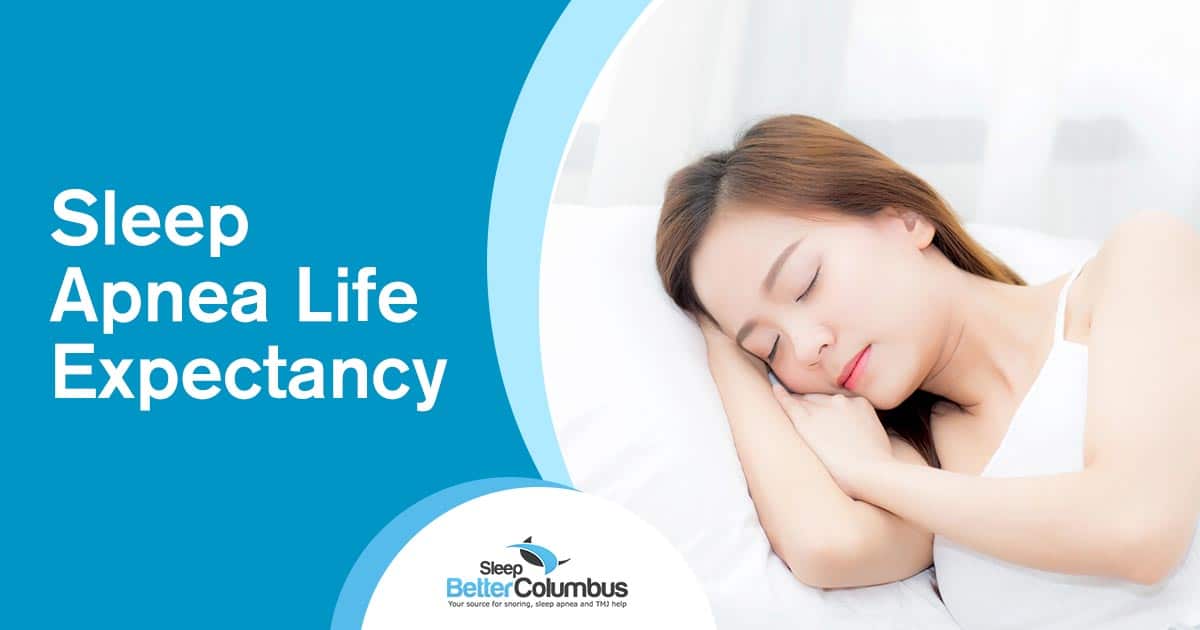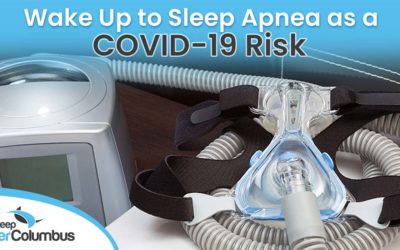Untreated Sleep Apnea Can Decrease Your Life Expectancy
Obstructive sleep apnea is a sleep disorder caused by an airway blockage when lying down that leaves people gasping for air or choking in an attempt to open their airways again. These periods of breathing stoppages can last from a few seconds to a few minutes. During each one, your brain is deprived of adequate oxygen, which leads to your body releasing stress hormones that pose a risk to your overall health.
Over time, the increased stress and panic your body experiences from frequent breathing disruptions can severely affect your health. Research has indicated that untreated sleep apnea can shorten a person’s life expectancy by several years, and according to the American Academy of Sleep Medicine, untreated sleep apnea increases your risk of death by 17% through the short-term and long-term health issues associated with untreated sleep apnea.
Short-Term and Long-Term Health Issues from Untreated Sleep Apnea
Untreated sleep apnea creates multiple short-term and long-term health issues that can degrade a person’s quality of life. Short-term effects experienced by people with untreated OSA include excessive daytime sleepiness, interrupted sleep, reduced deep sleep, poor sleep quality, fatigue, and lack of concentration. When sleep apnea is left untreated, the short-term symptoms a person experiences can lead to chronic long-term issues, with some of these being experienced at much younger ages than is typical.
- High blood pressure
- Heart problems like irregular heart rhythm and heart failure
- Cardiovascular diseases
- Stroke
- Type 2 Diabetes
- Obesity
- Cognitive issues like poor concentration and memory loss
- Early-onset dementia
Each of these health conditions can decrease an individual’s life expectancy and have the potential to become chronic and debilitating, so it’s essential to be compliant and consistent with sleep apnea treatment. Effective sleep apnea treatment will help you avoid a decreased life expectancy caused by untreated sleep apnea.
Sleep Apnea Treatment Can Improve Health, Increase Life Expectancy, and Reduce Risks
When sleep apnea is left untreated, it decreases your life expectancy; however, treating your sleep apnea will increase your life expectancy and also reduce the risk of premature death, stroke, and other health conditions.
It’s extremely important to be compliant and consistent with your sleep apnea treatment plan to effectively manage the condition and improve your health.
Sleep Apnea Treatment Options
Your treatment plan may include nonsurgical treatment options that might be a part of your treatment plan, including the use of oral appliances, nasal resistors, oropharyngeal exercises, positional therapy, and continuous positive airway pressure (CPAP) machines.
1. CPAP (Continuous Positive Airway Pressure) Machine
CPAP (continuous positive airway pressure) machines are a known sleep apnea treatment option. Still, the effectiveness of a CPAP depends on using the machine consistently and correctly. Unfortunately, many people who try CPAP therapy may find compliance with their treatment challenging when they discover they struggle with using the machine, don’t like it, have a hard time adjusting to it, or cannot tolerate the mask or the noise.
2. Oral Appliances from a Sleep Apnea Dentist
Oral appliance therapy is a nonsurgical treatment, and a CPAP alternative is an effective sleep apnea treatment. An oral appliance or dental device for sleep apnea treatment is a specially fitted device custom-made by a dentist trained in sleep medicine. An oral appliance’s primary purpose is to keep the airway open during sleep so the normal airflow during breathing isn’t blocked. These dental devices look like a sports mouthguard or an orthodontic retainer but fit more comfortably. The most common oral appliances are mandibular advancement devices (MADs) and tongue-retaining devices (TRDs).
- Mandibular advancement devices (MADs) are sophisticated devices designed to effectively combat obstructive sleep apnea. MADs called mandibular advancement splints, keep your airway unobstructed by gently moving your jaw forward.
- Tongue-retaining devices, also known as tongue-stabilizing devices (TSDs), prevent the tongue from sliding to the back of the mouth and blocking the airway.
FDA-registered oral appliances can treat patients diagnosed with mild or moderate sleep apnea. A qualified dentist trained in dental sleep medicine will choose the right oral appliance for you based on factors such as the degree of snoring and mouth size. Oral appliances are an effective treatment option that can reduce your risk of sleep apnea-related strokes, and many people find oral appliances to be comfortable and relatively non-intrusive.
3. Lifestyle Changes to Treat Sleep Apnea
Lifestyle changes can help prevent and treat sleep apnea and are often used with other treatment options. Lifestyle changes can include:
- avoiding alcohol and sedative medications before bedtime
- frequent and increased physical exercise
- changing your diet and physical activity routine
- weight loss when indicated
Sleep Apnea Specialists Can Help You Manage Sleep Apnea Effectively to Decrease Health Risks and Increase Life Expectancy
The sleep apnea specialists at Sleep Better Columbus are committed to providing compassionate care for every patient and helping each patient find the best and most effective sleep apnea treatment for them. Consistency and compliance with sleep apnea treatment are crucial to effectively managing symptoms, decreasing health risks, and improving health.
We understand many patients may prefer alternatives to CPAP machines, and our sleep apnea therapy solution is simple and comfortable. It uses specially designed mouthpieces that will quickly help those with sleep-disordered breathing sleep better.
Call Sleep Better Columbus today at 614-777-7350 to learn more about how you can extend your sleep apnea life expectancy with non-invasive treatments.




